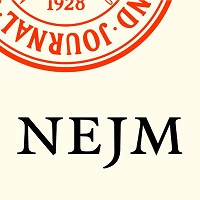 CMS most recent report on their EHR Incentive program was July 2017 says it has paid out over $37B to participants. Since the beginning in 2009 the HITECH Act, part of the ARRA bailout bill, the effort to get healthcare provides to embrace a digital healthcare ecosystem has been an uphill battle along with dragging a 100 ton boulder up with it. Some ask was our money well spent? Some ask what was the alternative? Some say there was never and will never be another time to get this kind of money to spur the industry in so many different ways. There have been a few we have trusted from the beginning, when they spoke, we listened. So what are they saying now?
CMS most recent report on their EHR Incentive program was July 2017 says it has paid out over $37B to participants. Since the beginning in 2009 the HITECH Act, part of the ARRA bailout bill, the effort to get healthcare provides to embrace a digital healthcare ecosystem has been an uphill battle along with dragging a 100 ton boulder up with it. Some ask was our money well spent? Some ask what was the alternative? Some say there was never and will never be another time to get this kind of money to spur the industry in so many different ways. There have been a few we have trusted from the beginning, when they spoke, we listened. So what are they saying now?
John D. Halamka, M.D., and Micky Tripathi, Ph.D.
These two guys have made it a personal mission to be there from the beginning and help, add their expertise, and write about our journey. They should need no introduction. Through the good and bad these two have been champions of the cause and I hope we have thanked them enough. Their latest collaboration in the NEJM reflects on the HITECH Act and where we go from here.
The HITECH Era in Retrospect
The New England Journal of Medicine, September 7, 2017
At a high level, the Health Information Technology for Economic and Clinical Health (HITECH) Act of 2009 accomplished something miraculous: the vast majority of U.S. hospitals and physicians are now active users of electronic health record (EHR) systems. No other sector of the U.S. economy of similar size (one sixth of the gross domestic product) and complexity (more than 5000 hospitals and more than 500,000 physicians) has undergone such rapid computerization.
Vindell Washington, M.D., M.H.C.M., Karen DeSalvo, M.D., M.P.H., Farzad Mostashari, M.D., and David Blumenthal, M.D., M.P.P.
Four past National Coordinators for the ONC can bring a lot to the conversation when it comes to reflections. These four all answered the call when asked to serve and had front row seats to the spending of the billions. The NEJM also rightfully went to them for their thoughts past and forward.
The HITECH Era and the Path Forward
The New England Journal of Medicine, September 7, 2017
More than a decade ago, the National Academy of Medicine outlined the serious consequences of a paper-based health system: redundant tests; increased costs; uncoordinated and fragmented care; medical decisions made with incomplete data, leading to adverse events; and potential clinical innovations left undiscovered, hidden in patient files.1,2 To help address these concerns, Congress passed the Health Information Technology for Economic and Clinical Health (HITECH) Act, part of the American Recovery and Reinvestment Act of 2009. The law spurred rapid progress toward digitizing the health care delivery system, which has experienced a dramatic transformation as a result of concerted efforts by both public and private sectors. We believe we’re at an inflection point in terms of the capability to share research results, clinical guidelines, and patient data seamlessly and securely. The federal government’s actions to date have set the stage for an expanding role for health information technology (IT) in improved care delivery.
Keep Listening to the Experts
John D. Halamka, M.D. – Read his addictive blog Life as a Healthcare CIO, that includes hospital IT challenges and solutions to his world travels to his life on Unity Farm in Sherborn Massachusetts.
David Blumenthal, M.D. – Now president of the Commonwealth Fund, read his latest opinions in their To The Point Blog. And follow him on Twitter @DavidBlumenthal.
Micky Tripathi, Ph.D. – Now the president and CEO of Massachusetts eHealth Collaborative, you can learn a lot about Micky by following him on Twitter @mickytripathi1.
Vindell Washington, M.D.- Keep up with him and find out where he is speaking next on Twitter @vindellw.
Karen DeSalvo, M.D. – Keep up with her and find out what she is doing next on Twitter @KBDeSalvo.
Farzad Mostashari, M.D. – Since leaving the ONC, Farzad co-founded Aledade, an ACO for primary care and is the current CEO. You want to know what he is thinking? Then follow him on Twitter @Farzad_MD.
